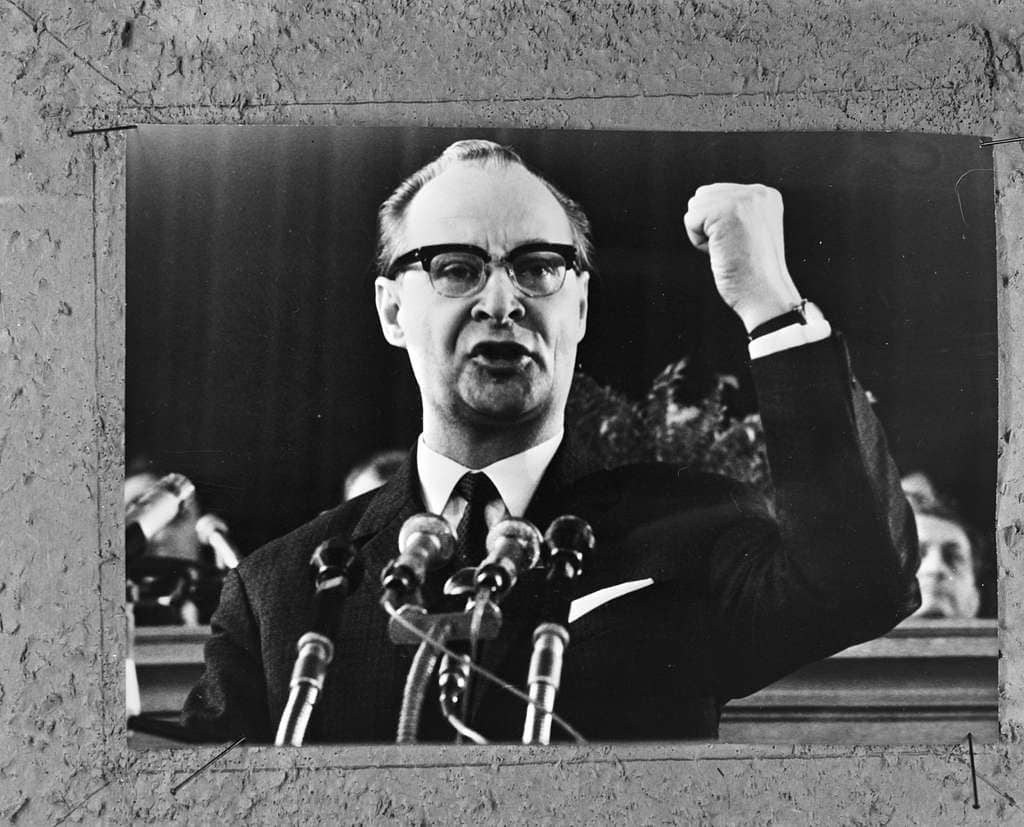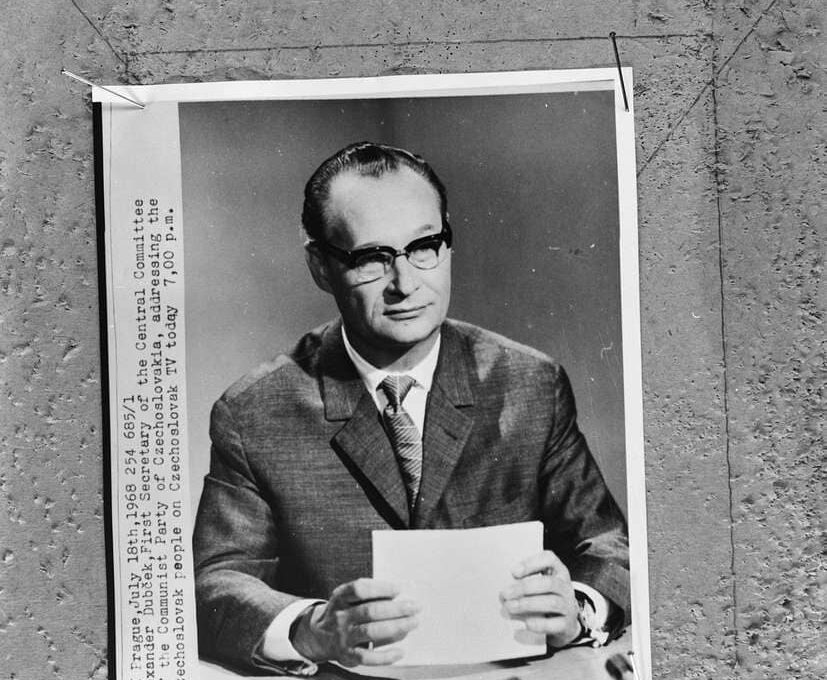Table of contents Show
Who was Alexander Dubcek? Alexander Dubcek is remembered throughout history as a symbol of heroism, hope, and defiance against communism’s harsh forces. Born in 1921 in what was then Czechoslovakia, Dubcek went on to become a key player in the Prague Spring movement, leading a fight for political transformation that would forever alter the course of Eastern Europe. Join us as we address the question “Who was Alexander Dubcek?”
Alexander Dubcek’s daring reforms during the Prague Spring changed Czechoslovakia and gave multitudes worldwide hope. Although his dream for an open, democratic society was briefly dashed, Dubcek’s spirit lingers on as a reminder of human fortitude and the ability to oppose repressive systems.
Although the Prague Spring in 1968 did not directly cause the 1992 split of Czechoslovakia, it shaped its political history.
Background – understanding communist Czechoslovakia

Czechoslovakia experienced a turbulent period under communism. One must understand the complicated historical, political, and social setting that affected millions of lives under Soviet influence to understand this era. This article unravels the historical tapestry to explain communist Czechoslovakia.
Birth of a Nation:
The birth of communist Czechoslovakia is crucial to understanding it. The new nation took its first tentative moves toward independence after World War I. T. G. Masaryk and Edvard Beneš, the founders of Czechoslovakia, envisioned democracy and unity, which would eventually be overshadowed by communism. However, its founders’ ideas inspired many silent opponents throughout the century.
Communism’s Rise:
After the war, charismatic people like Klement Gottwald and Antonín Zápotocký took power in a tumultuous period. Their goal of making Czechoslovakia socialist was realized after the February 1948 coup. With the Iron Curtain falling over Europe, the Soviet Union pushed Czechoslovakia into communism. The delicate equilibrium between Czech national identity and Soviet rule will unravel over time.
Life in Gray:
Communist Czechoslovakia was frightening but charming. This chapter shows how ordinary citizens were constrained by a system that determined their rights and fate. From Prague’s towers to Ostrava’s industrial core, the landscapes spoke of endurance and independence.
Underground Resistance:
Discontent simmered as the Iron Fist tightened. Vaclav Havel and the “Velvet Revolution” symbolized the triumphant opposition that overthrew communism. Writers, singers, and intellectuals met secretly to promote change, shaping Czechoslovakia’s democracy.
The Legacy
The Czech Republic and Slovakia entered a new era when the Czechoslovak Federation peacefully disintegrated on December 31, 1992. We reflect on the lasting social, economic, and political impacts of communist Czechoslovakia. From industrial collapse to national pride and identity revival, communism’s fall resonates across.
Who was Alexander Dubcek?
Who was Alexander Dubcek? Slovak politician Alexander Dubček (1921–1992) was instrumental in the Prague Spring-era history of Czechoslovakia. Here is Alexander Dubček’s biography:
Early Years:
Alexander Dubček was born in Uhrovec, Czechoslovakia (now Slovakia) on November 27, 1921.
Dubček joined the anti-fascist resistance organisation during World War II and participated in the Slovak National Uprising against German forces.
Political career:
After the war, Dubček rose in the Communist Party of Czechoslovakia, holding various positions in the party and administration.
Prague Spring, 1968
In January 1968, Dubček became the First Secretary of the Czechoslovakian Communist Party.
Dubček led political and economic reforms during the Prague Spring, promoting “socialism with a human face.” This included press, political, and democratic government freedoms.
Soviet invasion and aftermath:
To block the Prague Spring and Eastern Bloc liberalisation, Soviet soldiers invaded Czechoslovakia in August 1968.
Mr. Dubček was arrested and taken to Moscow. After returning to Czechoslovakia in April 1969, he was removed and reforms reverted.
After Cold War:
Dubček returned to politics in the late 1980s amid political changes in Eastern Europe.
He helped overthrow Czechoslovakia’s communist regime in 1989’s Velvet Revolution.
Dubček was elected Speaker of the Czechoslovakian Federal Assembly while serving as its head.
Death:
Alexander Dubček passed away on November 7, 1992.
Alexander Dubcek’s role among Czechoslovakia’s leaders during Prague Spring
What was Alexander Dubček known for? Dubček led an era of political liberalization known as the Prague Spring. During this tenure, he carried out an array of reforms to establish “socialism with a human face.” The changes included expanded press freedom, free expression, and a more democratic government structure.
Dubček’s attempts to overhaul the communist system encountered opposition from the Soviet Union as well as other Warsaw Pact nations. In August 1968, Soviet-led troops invaded Czechoslovakia, suppressing reforms and restoring the orthodox communist government. Dubček was arrested and sent to Moscow before being replaced by Gustáv Husák in Czechoslovakia in April 1969.
Alexander Dubček’s involvement in the Prague Spring and his subsequent dismissal mirrored Cold War geopolitical tensions since the Soviet Union opposed any divergence from traditional communism inside the Eastern Bloc.
Navigating Political Dynamics with Alexander Dubcek in the Cold War arena
Alexander Dubček’s role in the Cold War was very significant!
The period known as the Cold War was marked by ideological clashes, geopolitical disputes, and a fight for power between the Western and Eastern Blocs. During the 1968 Prague Spring, Alexander Dubček, the First Secretary of the Communist Party of Czechoslovakia, played a pivotal role in the worldwide power struggle. Dubček’s changes to politics challenged Eastern Bloc traditions, creating complicated political dynamics during the Cold War.
The Prague Spring and subsequent events left an indelible mark on the Cold War narrative. It emphasized the limitations of political reform inside the communist system, as well as the significant stakes associated with opposing the status quo. The event also demonstrated the lengths to which the Soviet Union was willing to use its influence to prevent divergence from established communist standards.
The memory of this episode acts as a reminder of the difficulties encountered by individuals pursuing political transformation in a bipolar society.
Exploring Alexander Dubcek’s Memorable Quotes
Alexander Dubcek’s quotes inspire us to uphold these principles in our lives and societies. Among them:
1. “Man’s freedom must never be betrayed; otherwise, its power is reduced to a mere illusion.”
This quote captures his steadfast dedication to individual autonomy and freedom of choice.
2. “Democracy is not just about elections but the empowerment of citizens to actively participate in shaping their own destiny.”
The phrase by Dubcek underlines the importance of engaging citizens in a vibrant democracy.
3. “There is no democracy without social justice; both are the pillars upon which a fair society stands.”
This remark reminds us that a democratic society is defined by its ability to offer opportunities, fairness, and equal treatment for everyone.
4. “Change is inevitable and necessary, but it must be guided by a strong moral compass.”
This shows that development should not compromise ethics and morality
5. “Unity among nations can bring forth a harmonious world, free from the shackles of aggression and conflict.”
It stresses the significance of international cooperation to reduce violence and promote peace.





